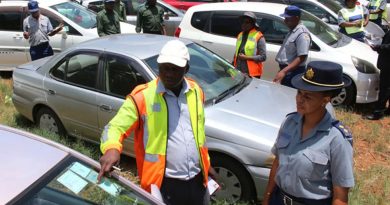ECDs classes conducted in fowl runs, tobacco barns
* Parliamentary committee finds some pupils walking 16km one way to school
HARARE – Many schools across Zimbabwe continue to operate in dilapidated buildings, with some learners attending lessons in abandoned tobacco barns and even fowl runs, a joint parliamentary committee has revealed.
This was outlined in a report by the Portfolio Committee on Primary and Secondary Education and the Thematic Committee on Gender and Development, which assessed the state of access to basic primary and secondary education in the country.
The joint committee expressed concern over the dire conditions in many schools, citing a lack of adequate classroom infrastructure and library facilities, which they said severely hampered the learning environment.
“The Joint Committee was informed that at Herbert Chitepo Primary School in Zvimba District, which has an enrolment of over 1,000 pupils, abandoned tobacco grading sheds are being used as classrooms. Similarly, Early Childhood Development (ECD) classes at Tore Primary School are conducted in a fowl run, while some classes at Chimedza Primary School are held in open spaces,” the report stated.
The committee also noted widespread overcrowding in classrooms, with many schools exceeding the recommended teacher-pupil ratio of 1:40.
“The Joint Committee found that many schools are exceeding the standard teacher-pupil ratio of 1:40. This overburdening of teachers hinders their ability to provide individual attention to students, further negatively impacting learning outcomes,” the report said.
In response to overcrowding, some urban schools have resorted to “hot-sitting”, a system where pupils attend classes in morning and afternoon shifts.
However, the committee warned that this arrangement affects learners with disabilities.
In Gwanda district, the committee observed a critical shortage of both teachers and schools.
Rural areas were found to be the hardest hit, with many learners walking more than 13 kilometers one way to the nearest school, especially at the secondary level.
“At Dabengwa Primary School in Bubi, for example, some pupils travel as far as 16 kilometers one way. These long distances lead to learner fatigue, which affects concentration and academic performance,” the report said.
Teachers, learners, and parents told the committee that the time spent traveling reduces the hours available for studying and completing homework, further hindering academic success.




